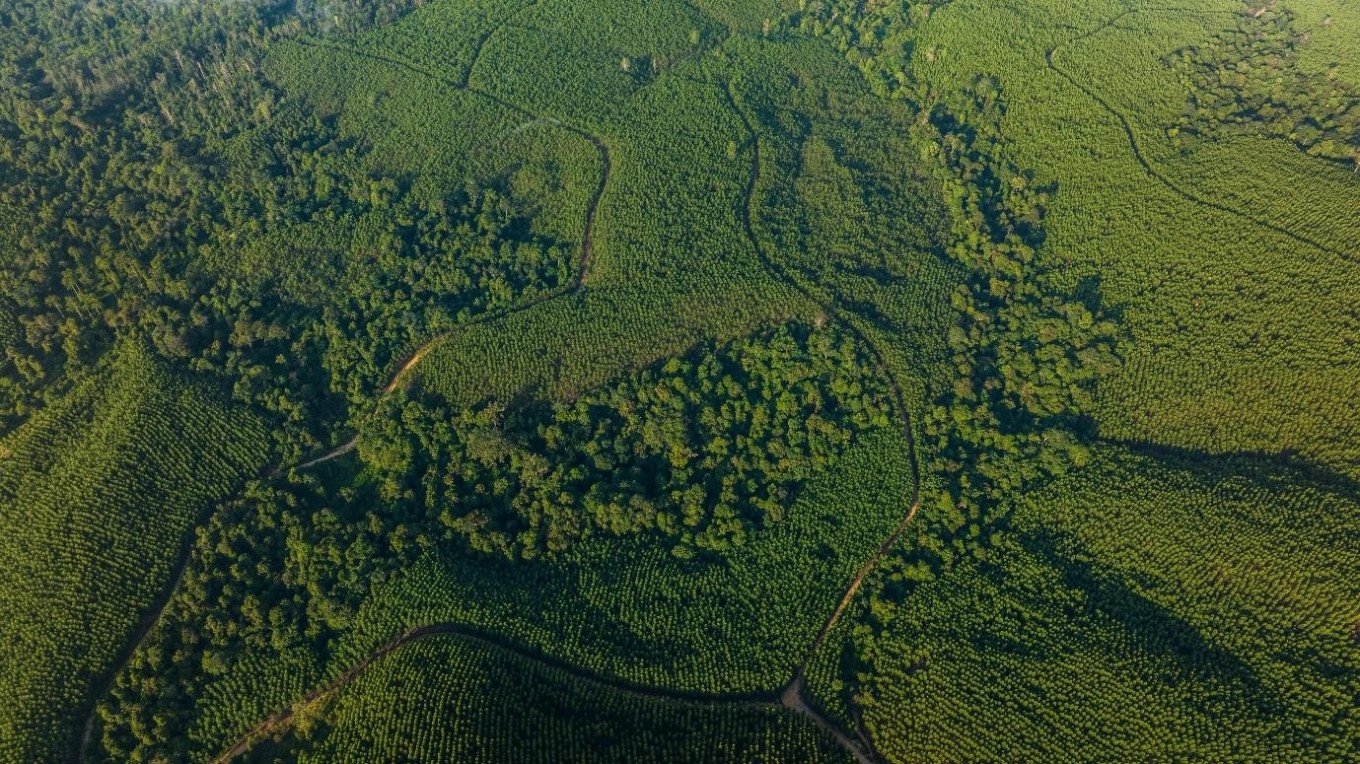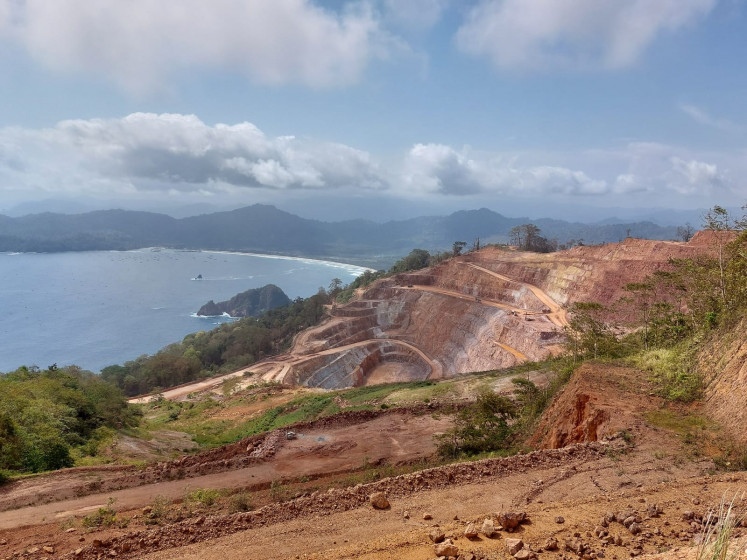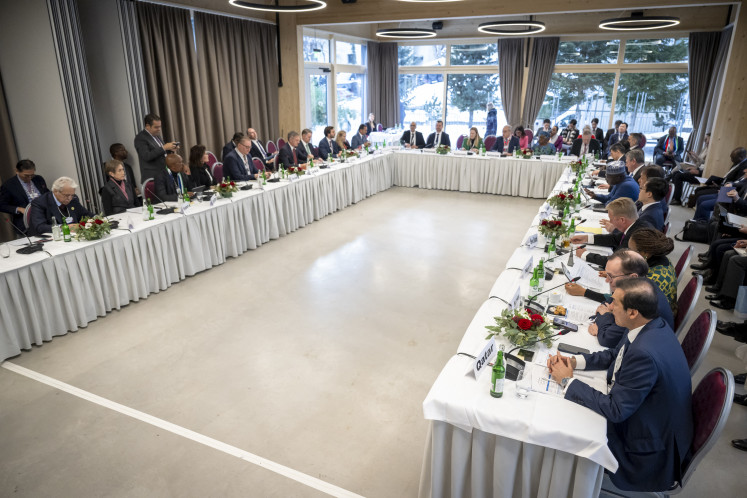Popular Reads
Top Results
Can't find what you're looking for?
View all search resultsPopular Reads
Top Results
Can't find what you're looking for?
View all search resultsSFMP 2.0: Tracking a decade of sustainability in action
Change text size
Gift Premium Articles
to Anyone
S
outheast Asia is now a leader in sustainable business growth. While companies around the world have reacted to a backdrop of global instability by watering down their sustainability commitments, the region’s private sector is staying the course and forging ahead.
The recently released Southeast Asia Green Economy 2025 Report, authored by a group of global players including Standard Chartered, Google and Temasek, found that private green investment in the region grew 40 percent last year to US$8 billion. That surge is continuing this year, with companies increasingly seeing such investments as a way to mitigate climate risk and improve performance.
At APRIL Group, a leading producer of pulp, paper and board with operations in Riau, these factors have also been the drivers for its extensive investment into sustainability over the past decade. Investing in more sustainable, circular and nature-friendly practices is part of a long-standing set of robust commitments that are embedded in the company’s underlying business strategy, making them resilient to external shifts and instability.
This year, APRIL celebrated 10 years of its Sustainable Forest Management Policy 2.0 (SFMP 2.0), a foundational moment which defined the company’s approach to giving back to the land environmentally, socially and economically. The policy ended deforestation in its concessions and supply chain, and set in stone new commitments to the local people and the environment. The report A Decade of Action, published in June, looks back on what SFMP 2.0 has achieved.
As a company, APRIL is conscious that the extent of its operations also brings responsibilities. APRIL manages land concessions totaling over 1.4 million hectares across Sumatra and Kalimantan, with 607,000 ha established as commercial plantations and over 15 million tonnes of wood and fiber delivered to the mill annually. The company has set aside 466,000 ha for conservation and restoration, more than six times the size of Singapore.
SMFP 2.0 sought to define and strengthen APRIL’s approach to sustainable business, including responsible peatland management, commitment to the well-being of the communities in which the company operates, principles for addressing land claims with fairness, and commitment to reducing its greenhouse gas emission footprint.
At the heart of SFMP 2.0 is APRIL’s Production-Protection approach, a unique model for balancing forest conservation and restoration alongside sustainable production while ensuring socioeconomic growth for communities. Just as APRIL’s plantations are reliant on ecosystem services such as clean water and flood mediation provided by the natural landscapes where the company operates, protection of those landscapes stems from its sustainable production.
For example, APRIL’s most significant conservation project is Restorasi Ekosistem Riau (RER; Riau Ecosystem Restoration), which covers an area of over 150,000 ha largely made up of untouched peatland rainforest. Highly valuable in biodiversity terms, this area is home to 12 species categorized as “critically endangered” on the IUCN Red List, including the Sumatran tiger and pangolin.
A ring of commercial plantations serves as a deterrent to illegal loggers and poachers. In addition, the project’s budget, which covers environmental management and a team of rangers and scientists, is provided by APRIL through a unique funding scheme.
“That flow of conservation funds is not an arbitrary sum, but is linked directly to the success of the business through our innovative dollar-per-tonne mechanism. This places $1 into our conservation fund for every tonne of plantation wood delivered to our mill. In 2024, this generated $14.8 million for the company’s conservation work, including RER,” said Lucita Jasmin, director of sustainability and external affairs at APRIL.
SFMP 2.0 set a target for the area of conservation APRIL manages, and the company is committed to conserve 1 ha of natural forest for every hectare of plantation. This 1-for-1 commitment goes well beyond the global commitment agreed by leaders under the Kunming-Montreal Global Biodiversity Framework, to conserve 30 percent of the world’s land and oceans by 2030. As of 2024, APRIL has achieved 77 percent of its 1-for-1 target and is on track to achieve 100 percent in the coming years.
SFMP 2.0 also committed APRIL to using science as a basis for its activities, which is particularly important for the ecologically sensitive peatlands in Riau province, where the company manages nearly 600,000 ha of plantation, conservation and restoration land. The company has its own in-house science team of over 250 scientists that focuses on conducting world-class primary research on the greenhouse gas impact from managing this land.
In line with SFMP 2.0, the company established the Independent Peat Expert Working Group in 2016, which provides independent, science-based recommendations on responsible peatland management. The group’s guidance has contributed to a reduction of 1.3 million tonnes of CO2 equivalent in emissions from land use changes since 2019.
Aside from the commitments to nature, climate and the environment, SFMP 2.0 also incorporates the company’s support for local communities. APRIL has long recognized that community development is not only vital to the company’s long-term success, but is inextricably linked to the achievement of its commitments.
“Our work with local communities includes support for health care and education, women’s involvement in community development programs as well as efforts to eradicate extreme poverty,” said Sihol Aritonang, president director of PT Riau Andalan Pulp and Paper, APRIL’s operating arm.
The individual commitments contained within SFMP 2.0 are important, but equally vital is the governance architecture it created to oversee the policy. The Stakeholder Advisory Committee (SAC), an independent body composed of national and international experts from industry, academia, NGOs and the public sector, plays a pivotal role.
The SAC not only oversees the annual independent assurance process and reports, but also provides us with strategic recommendations. This continuous independent oversight, including regular SAC meetings and Stakeholder Forums, ensures transparency, accountability and expert external input.
On these vitally important issues, APRIL has sought to set ambitious goals backed by science, to embed these into the company’s business strategy and to stand by its commitments. That approach has served the company well through a turbulent decade, in which APRIL has demonstrated that firm action on sustainability can be an enabler of business growth rather than an inhibitor of progress.











